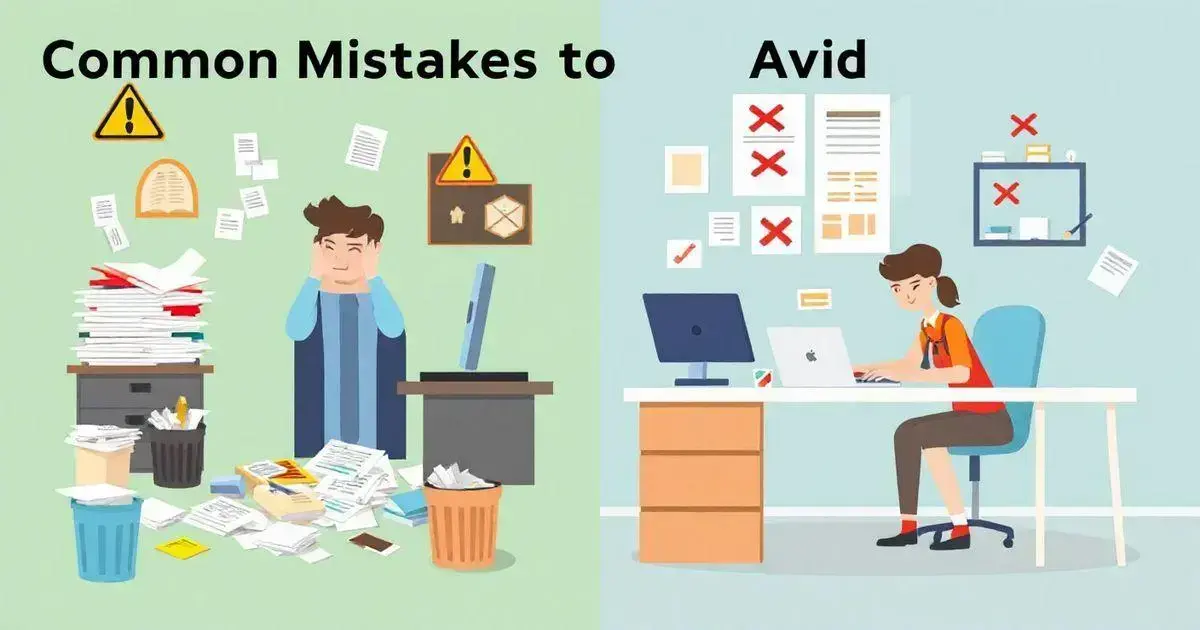What is a Personal Finance Challenge?
A personal finance challenge is an initiative where individuals work towards improving their financial situation through specific tasks and goals. It typically involves setting clear objectives, like saving a certain amount of money, reducing debt, or creating a budget.
Participants often share their progress with others, which adds accountability and motivation.
By engaging in a personal finance challenge, you can gain valuable insights into your spending patterns and savings habits. For example, if your goal is to save $1,000 in three months, you’ll need to analyze your monthly expenses and determine where you can cut back. This might involve dining out less or canceling subscriptions you rarely use.
Moreover, these challenges usually encourage participants to seek information and resources to better their financial literacy. Engaging with peers on similar journeys can provide support and introduce new strategies that work.
Overall, a personal finance challenge can be an effective way to build healthy financial habits that last a lifetime.
Benefits of Taking on a Finance Challenge

Taking on a personal finance challenge can bring many benefits to your financial health. First, it encourages accountability. When you set goals and track your progress, you become more aware of your spending habits. This awareness is a key step towards making positive changes.
Another great benefit is the opportunity to learn financial literacy. You may research budgeting techniques or investment basics during your challenge, which can improve your overall financial knowledge. You can also explore apps and tools that help you manage your money better.
Moreover, a personal finance challenge fosters a supportive community. By joining groups or forums, you can connect with others who share your goals. This support can motivate you to stick to your plan, share experiences, and celebrate victories together.
Finally, completing a finance challenge can lead to significant savings or debt reduction. Each step you take towards your goal contributes to your long-term financial security, helping you build a better future.
Setting Your Financial Goals
Setting your financial goals is the first step in taking control of your finances. It involves identifying what you want to achieve, whether it is saving for a vacation, paying off debt, or building an emergency fund. Clearly defined goals provide focus and motivation.
Start by setting SMART goals: Specific, Measurable, Achievable, Relevant, and Time-bound. For instance, instead of saying, “I want to save money,” say, “I want to save $500 in three months.” This clarity helps in tracking progress.
Once you have your goals, write them down. This act of committing your goals to paper increases your likelihood of success. Keep your goals visible, and review them regularly to stay on track.
Additionally, it is important to prioritize your goals. Determine which are most important to you. This helps allocate resources effectively, whether it is your time or money. Financial goals should evolve as life situations change, so be flexible and adjust as necessary.
In conclusion, setting financial goals is essential for anyone looking to improve their financial well-being. By approaching your goals in a structured way, you can navigate toward financial success with confidence.
Creating a Budget Strategy

Creating a budget strategy is essential for effective financial management. A budget helps track your income and expenses, allowing you to make informed decisions. Start by listing your monthly income. This includes your salary, bonuses, and any side income.
Next, identify necessary expenses, such as rent, utilities, and groceries.
Once you have income and expenses figured out, categorize your spending into fixed and variable expenses. Fixed expenses remain the same each month, while variable expenses can change. It is important to review these categories regularly to see where adjustments can be made.
Setting aside a portion of your income for savings is a crucial part of a budget strategy. Aim to save at least 20% of your income. This helps build an emergency fund and prepares you for unexpected costs.
Utilizing budgeting tools or apps can make this process easier. Many apps allow you to input your transactions and track your spending in real time. It creates awareness about your financial habits and promotes accountability.
Finally, periodically review your budget. Life changes and expenses may arise that require adjustments. Staying flexible with your budget will help ensure you are continuously working towards your financial goals.
Tracking Your Spending Habits
Tracking your spending habits is a crucial step in improving your financial health. By knowing where your money goes each month, you can identify unnecessary expenses and make informed decisions about your budget. Start by recording all your expenses, whether big or small. This can be done using a notebook, spreadsheets, or budgeting apps.
Consider categorizing your expenses into groups, such as food, transportation, entertainment, and bills. This classification will help you see which areas of spending are eating into your budget the most. For instance, you might discover that you are spending a lot on dining out, prompting you to cook at home more often.
Review your spending habits regularly. Set aside time each week or month to assess your expenses. Look for patterns and consider adjustments. For example, if you find you make frequent impulse purchases, you might want to implement a 24-hour rule. This means waiting a day before buying non-essential items.
Additionally, tracking your spending can also reveal opportunities for saving. Maybe you can cancel a subscription you don’t use or switch to a cheaper service provider. Overall, the act of tracking empowers you to take charge of your finances and make smarter choices.
Tips for Sticking to Your Plan

Sticking to your financial plan can be challenging, but it is crucial for achieving your goals. Here are some tips to help you stay on track:
1. Set Clear Goals: Clearly define what you want to achieve. Whether it is saving for a vacation or paying off debt, having specific targets helps maintain focus.
2. Use a Budget: Create and stick to a budget. A budget gives you a roadmap to follow and highlights areas where you can cut back.
3. Track Your Progress: Regularly check how well you are sticking to your plan. Tracking spending, savings, and progress toward your goals keeps you accountable.
4. Celebrate Small Wins: Reward yourself for reaching mini-goals. Celebrating small achievements can motivate you to keep going.
5. Stay Flexible: Life can be unpredictable, so be prepared to adjust your plan when necessary. Flexibility helps you adapt and remain committed.
6. Seek Support: Share your goals with friends or family. Having a support system can encourage you and provide accountability.
7. Keep Learning: Continuously educate yourself about personal finance. The more knowledge you have, the better decisions you can make.
By implementing these tips, you can increase your chances of sticking to your financial plan and achieving your goals.
Tools and Resources to Help You
Finding the right tools and resources can significantly enhance your personal finance journey. Here are some helpful options:
1. Budgeting Apps: Budgeting apps like Mint and YNAB (You Need A Budget) can help you track your income and expenses effortlessly. These tools categorize your spending and can send alerts for bill due dates.
2. Financial Websites: Websites like NerdWallet and Investopedia offer valuable articles and guides on personal finance topics. They provide insights into budgeting, saving, and investing strategies.
3. Online Courses: Platforms such as Coursera and Udemy have courses on personal finance, teaching you essential skills like budgeting and investing.
4. Community Forums: Joining online forums like Reddit’s r/personalfinance can connect you with others. You can share experiences, ask for advice, and learn from fellow participants.
5. Financial Advisors: If you prefer personalized advice, consider consulting a financial advisor. Many offer services tailored to specific goals, which can benefit you in the long run.
By utilizing these tools and resources, you can gain the knowledge and control needed to succeed in your personal finance challenge.
Common Mistakes to Avoid

When taking on a personal finance challenge, it is essential to be aware of common mistakes that many people make. Recognizing these pitfalls can help you stay on track and achieve your financial goals effectively.
1. Setting Unrealistic Goals: One frequent mistake is setting goals that are not achievable. It is essential to create S.M.A.R.T goals that are specific, measurable, attainable, relevant, and time-bound. For instance, saving $5,000 in one month may not be realistic for everyone.
2. Ignoring Small Expenses: Many people overlook small purchases that can add up over time. Every dollar counts, so tracking every expense, no matter how small, is important for a complete financial picture.
3. Not Adjusting the Budget: Life changes, and so should your budget. Failing to adjust your budget regularly in response to changing circumstances can lead to overspending or missed savings opportunities.
4. Going at It Alone: Trying to tackle a personal finance challenge without seeking support can be challenging. Sharing your goals with a friend or joining a finance group can increase accountability and motivation.
5. Skipping Savings: Many people prioritize spending over saving. This can lead to financial stress. It is important to prioritize savings in your budget, treating them like a necessary expense.
By being mindful of these common mistakes, you can enhance your personal finance journey and work more effectively toward your goals.
Success Stories: Real-Life Transformations
Success stories from real people can inspire and motivate you on your personal finance journey. Many individuals have transformed their financial situations through dedication and discipline.
Case 1: Sarah, the Debt Slayer: Sarah was overwhelmed by $30,000 in student loans. She created a strict budget and committed to the debt snowball method, where she focused on paying off her smallest debts first. Over three years, she eliminated all her debt and now enjoys a debt-free life.
Case 2: Mike, the Savings Champion: Mike wanted to travel but needed to save money. He automated his savings by setting up automatic transfers to a high-yield savings account. By cutting unnecessary expenses and using a budgeting app, he saved $10,000 in just two years, enabling him to take a dream trip to Europe.
Case 3: Emily, the Investment Starter: Emily knew she needed to invest for her future but felt intimidated. She started small, contributing $50 a month to a retirement account. As she learned more about investing, she increased her contributions. Now, she has a growing retirement fund and feels confident about her financial future.
These stories show that with the right mindset and strategies, anyone can take control of their finances and achieve their goals.
FAQ – Frequently Asked Questions About Personal Finance Challenge
What is a personal finance challenge?
A personal finance challenge is an initiative where individuals set specific financial goals and work to improve their financial literacy and habits.
How can I set effective financial goals?
Effective financial goals should be SMART: Specific, Measurable, Achievable, Relevant, and Time-bound. This clarity helps you stay focused.
What tools can help me track my spending?
You can use budgeting apps like Mint or YNAB, and traditional methods like spreadsheets or notebooks to track your expenses.
How do I stick to my financial plan?
To stick to your plan, set clear goals, track your progress, celebrate small wins, and seek support from friends or finance groups.
What common mistakes should I avoid when managing my finances?
Avoid setting unrealistic goals, ignoring small expenses, and neglecting to adjust your budget as your situation changes.
Are there success stories related to personal finance challenges?
Yes, many people have successfully managed their finances by applying strategies like debt snowball or automating their savings.